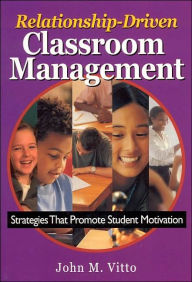 A recent conversation at work centered around the power of teachers. We all know how much influence educators have on developing minds. We all carry vivid memories of our most loved and most despised teachers. Here’s an amusing example of this influence. Think about your online passwords. Think about the security questions you use to recover them. The questions are things like, “What is your maternal grandmother’s first name?,” “What street did you grow up on?,” “What is the name of your favorite pet?,” and “What was the name of your favorite teacher?” They never ask for the name of your first financial adviser or who is your favorite mechanic. They know you will never forget certain teachers.
A recent conversation at work centered around the power of teachers. We all know how much influence educators have on developing minds. We all carry vivid memories of our most loved and most despised teachers. Here’s an amusing example of this influence. Think about your online passwords. Think about the security questions you use to recover them. The questions are things like, “What is your maternal grandmother’s first name?,” “What street did you grow up on?,” “What is the name of your favorite pet?,” and “What was the name of your favorite teacher?” They never ask for the name of your first financial adviser or who is your favorite mechanic. They know you will never forget certain teachers.
Of course, that power can be wielded for good or for evil. One of my mentor-principals told me the story several times of her freshman math teacher who finally told her one day, “I’ll give you a passing grade in this course if you promise never to take another math class again.” They each kept up their end of the bargain.
This is a tame example of teachers abusing their power by neglecting student learning in favor of the teacher’s status, convenience, or image. A co-worker told us about a math teacher who appeared to have no patience for her. One day she screwed up enough gumption to answer a question, and–to her disappointment–she got it wrong. Her teacher responded by asking, “Why do you even try?”
She said the next day she moved her seat to the back and quit trying in class. To my colleague’s immense credit, she used that experience as motivation to become an educator herself and advocate for students. I was personally inspired by come great teachers, and I admire someone who can turn such a negative experience into positive motivation.
There’s a thought-provoking article on this topic in the Fall 2014 issue of Teaching Tolerance. (This magazine was placed in my mailbox a couple of times by my helpful campus librarian. I never gathered up the courage to ask her why she felt I was the target audience for this publication.) In the article, Alan McEvoy does a great job of defining teacher bullying as well as how it harms the school culture.
When students are targeted by teachers, they often feel shamed and powerless. In many cases, they become unable to establish positive relationships within school. Teacher bullying can also have a contagion effect, indicating to students that the bullying of a particular individual is acceptable and making the individual vulnerable to more abuse.
The bold part of that quote really stood out to me. As teachers we sometimes identify a student as the classroom “mascot.” We overtly or subtly single out that student and thereby give other students permission to do the same. Think about the times you’ve heard a kid say, “Even Mrs. XXX doesn’t like YYY.” I’m thinking about a particular student in my classroom who sometimes rambled on and monopolized class discussions. Sometimes I would make eye contact with other students who were listening to one of these rants, and I would roll me eyes in a “can you believe this?” expression. That was totally out-of-line. My goal was to sympathize with the other students and communicate that I was trying to politely give this student his “turn,” but I did it in a very passive-aggressive way that undermined that student in the eyes of his peers. I wish I had a do-over for those moments.
And while I am fresh out of do-overs, I do get new opportunities for positive encounters each time I interact with a student. As teachers, we need to continually refine our craft and use today’s experience with our students to make us more effective tomorrow. When I look back over 17 years in the classroom, there were times I was off my game. Even a couple of long stretches. I’ve gotten hauled into the principal’s office a couple of times to account for myself. But I work in a district that places an emphasis on professional growth, and my leaders have encouraged me to improve and grow. It’s something I love about the folks I work with: they know they make mistakes, and they take those mistakes to heart and use the experience to improve.
 The best teachers listen to students. Another of my administrators reported to me that students in a panel once asked her, “Can you hire teachers who like kids?” In the book, “Relationship-Driven Classroom Management,” John Vitto describes a study where teachers were filmed talking to colleagues about particular students. Students and teachers were shown the videos–without sound– and were able to accurately tell in seconds whether or not the teacher liked the student he or she was discussing. This is not a career for someone who doesn’t like kids. The students are too important.
The best teachers listen to students. Another of my administrators reported to me that students in a panel once asked her, “Can you hire teachers who like kids?” In the book, “Relationship-Driven Classroom Management,” John Vitto describes a study where teachers were filmed talking to colleagues about particular students. Students and teachers were shown the videos–without sound– and were able to accurately tell in seconds whether or not the teacher liked the student he or she was discussing. This is not a career for someone who doesn’t like kids. The students are too important.
My personal strategy was simple. Each day at the end of class–starting from day one, I would casually announce to the class, “I love you, have a great day.” And even though there were days I didn’t feel it, saying that out loud each period each day eventually made me believe it. I was moved when students reported to me that a couple of other teachers in the hall had starting ending their classes the same way. That’s another important part of our role as teachers: encouraging our peers and helping each other to grow and improve. So this new year, be sure to take care of your students, and look for ways to help your co-workers take care of theirs!
